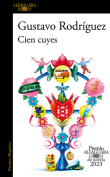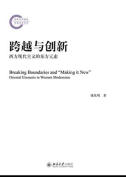Kairos by Jenny Erpenbeck
 New York. New Directions. 2023. 293 pages.
New York. New Directions. 2023. 293 pages.
Is the bond between a government and its citizens comparable to the relationship between lovers? I couldn’t help but ask myself this question again and again while reading Jenny Erpenbeck’s Kairos. The novel starts with Katharina receiving a box of papers and mementos from Hans, her recently deceased former lover. As she sorts through the letters and cassettes, she not only delves into her youth but also revisits a state that no longer exists.
Kairos is a Greek word meaning the opportune time. A fitting title for the tale of nineteen-year-old Katharina and her doomed affair with Hans, a married writer in his midfifties, against the backdrop of the collapsing East German state in the late 1980s. Or is their first meeting—by chance as they get off the tram on a rainy afternoon—the eponymous Kairos?
During their first encounter and subsequent night together, Erpenbeck’s narration artfully alternates between the perspectives of Katharina and Hans, inviting us to read the mirrored thoughts of this couple, unequal both in terms of age and power. As we progress through the novel, Katharina, who is initially perceived as weaker, becomes the dominant voice.
The lovers enjoy taking in the cultural establishments of East Berlin in the first weeks of their relationship. They are happy in each other’s company while Hans’s wife is absent, and they resolve to reaffirm their love with monthly anniversaries of the day they met as well as invented traditions such as rewalking the route they took from the tram. But when do the cracks in their relationship appear, exactly? Is it when, just a few weeks after meeting, Katharina is granted an exit visa to the West to visit her grandma in Cologne? Or when on her return east, she takes a trip to the Baltic coast to surprise Hans while he vacations with his family?
It becomes another tradition they repeat year after year. Are there hints of something more sinister? In the first flush of love, a friend of Katharina tells her she has lost her radiance since meeting Hans; and when Katharina goes to his flat, he is not there at the arranged time because, seemingly besotted, he wants to watch her walk to his door. Yet, as the relationship becomes more controlling, Katharina stays, the claustrophobia seeping through in Hofmann’s translation.
The age difference between the two protagonists means that while Katharina changes apprenticeships, briefly moving to the town of Frankfurt/Oder and later starting university, Hans remains stationary in Berlin, writing a novel and freelancing as a radio writer. Yet it also roots them in different periods of Germany’s turbulent twentieth century: Hans thriving in the Hitler Youth in the former German Eastern Territories and Katharina being entirely the product of a communist state, apparently content with the opportunities it allows her. Hans’s family were sent as refugees to West Germany, meaning he consciously chose to become a citizen of East Germany, but could his past play into his role as the aggressor in their relationship while Katharina’s socialist upbringing leaves her accepting of his increasing endeavors to control her? Are they both simply products of their times?
Only occasionally mentioned by name, the Stasi and the secret police are still omnipresent. Katharina moves to Frankfurt/Oder and sleeps with one of her colleagues. She writes about the event on a sheet of paper instead of the diary she keeps to show Hans. He discovers her betrayal and embarks on years of investigation into Katharina’s personality. His questions, tricks, and accusations delivered in person or in the form of cassettes are nothing short of the methods used by the Stasi. But still, Katharina does not leave him and loyally listens to the cassettes and answers his questions, believing this reeducation is penance for her transgression. The couple travel to Moscow, where their relationship briefly improves as they visit all the sights. Notably, the only metro station they don’t stop at was Lubyanka, the KGB headquarters.
Over time, Katharina begins to refute Hans’s narrative of the events in Frankfurt/Oder. She initially just thinks it but later voices it. This rejection is reflected in the events in Germany in the slow buildup to the fall of the Berlin Wall. It is noticeable that Soviet newspapers are no longer available in Germany due to their depiction of glasnost and perestroika as Katharina begins to question Hans’s authority.
Katharina’s confidence grows; she refuses sex with Hans and is emboldened as a citizen of a new country, although she seeks the illusion of power through petty theft. It was Hans who convinced her to go to West Berlin, but she adapts with the changing times and takes advantage of the new opportunities to travel. Simultaneously, Hans’s field of influence shrinks—his book is not released, and he is made redundant along with many other former employees of the East German state radio. In the epilogue, Katharina accesses Hans’s Stasi files, discovering that he was once an informer and later became the subject of an investigation himself—another instance of how relationships change.
Nobel Prize–tipped Erpenbeck admits that this book is in part autofiction, referring to Katharina’s visit to Cologne, where she sees homeless people for the first time, and a Berlin night in October 1989, where the stage for the GDR fortieth anniversary parade is being built while just a few streets further away dissidents are meeting in the Gethsemane Church. Having lived through the period herself—she would have been the same age as Katharina when the wall fell—her eagle-eyed observations are both poignant and accurate (e.g., she describes the communist leaders who built the foundations of the GDR as “looking for their reflection in a void generation”).
On the face of it, Kairos can be read as the downfall of a controlling relationship, but due to its setting it becomes much more: an analysis of the power balance between a state and its subjects. A compulsive read that leaves you wondering where/when the relationship deteriorated so badly and why Katharina stays, yet at the same time providing some insight into her motives. (Editorial note: The July 2018 issue of WLT included a cover feature about Erpenbeck’s work.)
 Catherine Venner is a translator from German who lives in northeast England. She pursued European studies in the UK, France, and Germany and has been working as a freelance translator for nearly ten years. Her first full-length book translation was Mika Sakamoto’s Zen in the Garden (Scribe, 2023).
Catherine Venner is a translator from German who lives in northeast England. She pursued European studies in the UK, France, and Germany and has been working as a freelance translator for nearly ten years. Her first full-length book translation was Mika Sakamoto’s Zen in the Garden (Scribe, 2023).



































